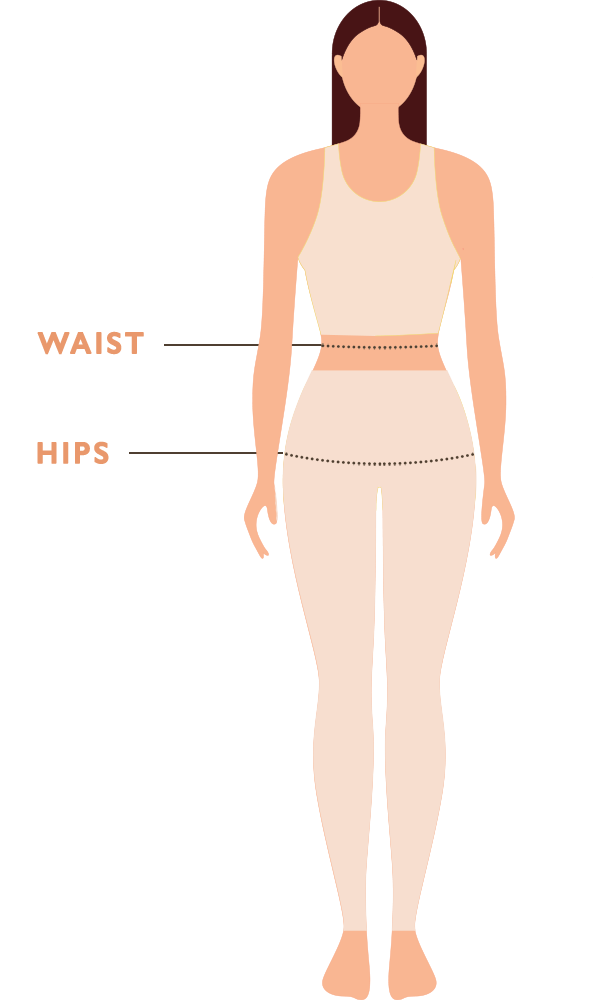Waist-to-hip ratio (WHR) looks at how your body fat is distributed and can give an indication of whether you have healthy or high levels of belly fat, which health professionals call abdominal obesity.
Abdominal obesity is different from being generally overweight or obese. It is possible to have too much belly fat, even if you have a healthy weight according to body mass index (BMI).
To determine your waist-to-hip ratio enter your waist and hip measurements in the boxes below and click the Calculate button.
How to Take Your Body Measurements
In order to get an accurate waist-hip ratio result it is important to place the measuring tape at the right level. To determine your waist-hip ratio you’ll need to take measurements from your waist and hips in the following way.

To measure your waist: Stand with your tummy relaxed and wrap the measuring tape right around your waist.
- If your waist curves inwards, measure your waist at its narrowest point, which should be just above the level of their belly button.
- If your waist curves outwards, measure you waist about one inch above the belly button.
To measure your hips: Wrap the measuring tape right around your hips at their widest point, which should be around the bony prominences.
What is a Healthy Waist-Hip Ratio?
Waist-hip ratio is used as a measure of abdominal obesity and an indicator of higher health risk. Having a larger waist may indicate an increased risk of suffering with health problems compared to having a narrower waist, irrespective of BMI.12
Too much deep belly fat is associated with a greater likelihood of medical problems such as diabetes and metabolic syndrome, as well as stroke, heart disease and even cancer. 345 Different health organizations set slightly different cut-off points for what they consider abdominal obesity.
The World Health Organization defines the following waist-to-hip ratio as abdominal obesity:6
- Women: More than 0.85
- Men: More than 0.9
The German Federation of Sports Medicine and Prevention (Deutsche Gesellschaft für Sportmedizin und Prävention) classifies waist-hip ratio as follows:7Women Men Ideal weight less than 0.80 less than 0.90 Overweight 0.80 – 0.84 0.90 – 0.99 Obese 0.85 or more 1.0 or more
Health professionals sometimes explain health risk in terms of body shape. They use two simple categories – pear shape and apple shape.
- Apple shape: A person with this shape has a higher waist-to-hip ratio and is more likely to carry excessive amounts of belly fat.
- Pear shape: Individuals with this shape have a smaller WHR and are more likely to carry most of their weight in the lower body.
Other important measurements are body mass index (BMI) and body fat percentage.


What body shape im i? with 35 28 38 body measurement